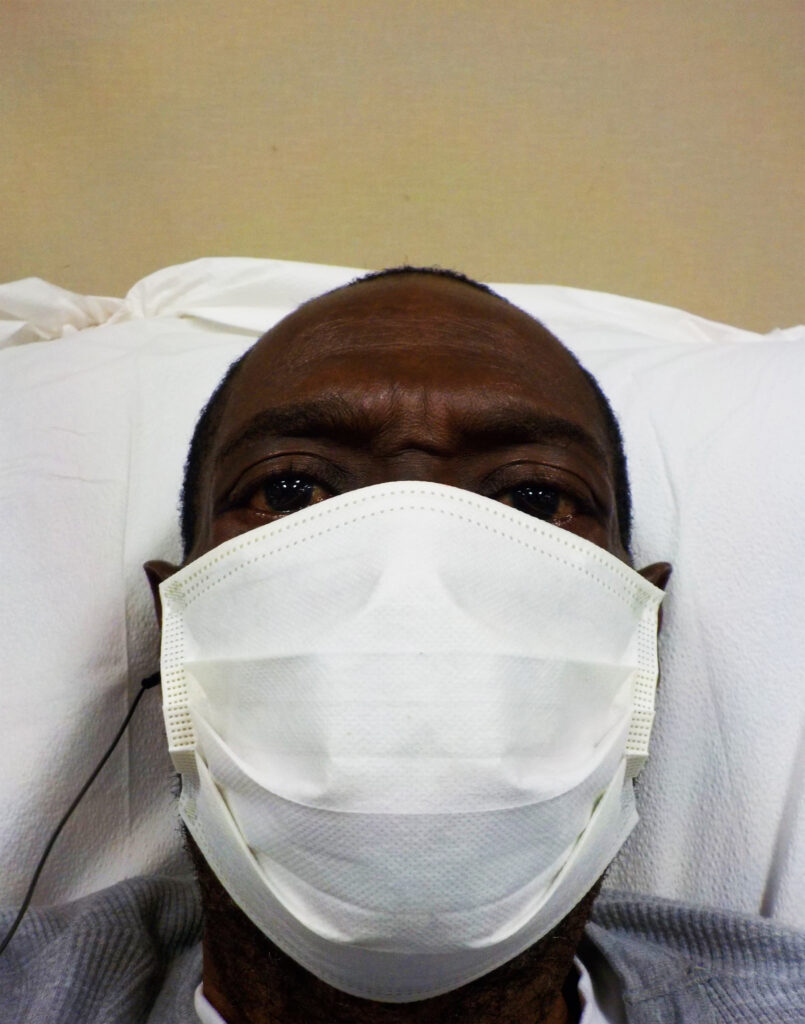I am a senior citizen who is experiencing chronic kidney disease. I receive a strict regimen of having my blood cleansed three times a week, four hours per session. I also have underlying health problems, including high blood pressure and cardiovascular disease.
I’m concerned about patient and health care worker safety at the dialysis center where I receive my treatment in Washington, D.C., especially now when the coronavirus is spreading like wildfire.
Experts warn that those most vulnerable to dying from the coronavirus are the elderly and those with chronic diseases.
Patients experiencing kidney failure also have a weakened immune system and an inability to fight infections in general.
The dialysis center takes precautions to prevent coronavirus infections. When patients enter the intake area of the center we are examined for fevers, coughs, and breathing problems.
If a patient has a high temperature, at three consecutive visits to the center, you are referred to the local hospital for testing for the coronavirus. Patients are also required to wear a face mask at the center.
Staff at the center are required to take similar precautions. Health care technicians are equipped with gowns, visors, and face masks to help prevent the spread of the virus. Telehealth exams are now routine at the center.
Despite the precautions, there are still coronavirus infections among patients and staff members. A few of my fellow patients recently contracted the virus and died, according to a source at the center.
I remain on heightened alert since patients are packed together and sit in a group-like setting.
Since self-quarantine at home is out of the question for dialysis patients, those infected with the coronavirus continue to get their treatment at the center. This practice puts noninfected patients at risk of contracting the virus.
And there is no transparency about the number of patients and staff who have contracted the virus at the center. Transparency can help prevent the virus from spreading.
According to the Centers for Disease Control and Prevention, the primary mode of transmission of the coronavirus is person-to-person who are in close contact with one another. The infection is spread through respiratory droplets when a person coughs or sneezes. It also may be possible to get coronavirus by touching surfaces and then touching your mouth, nose, or eyes.
There’s more. Some of the health care employees at the center also work at other medical facilities, such as hospitals and clinics. Those who may have been exposed to the virus can take it with them to other facilities, opening new pathways of infection.
There is also a shortage of supplies, like at other health care facilities, such as face masks and hand sanitizer. Patients use the same face mask all week long before we are given another one at the start of a new week.
There also should be a focus on the mental and physical health of patients and heath care workers. These times are stressful.
Dialysis centers face significant challenges in protecting patients from the coronavirus. The lives of hundreds of thousands of dialysis patients are at risk of contracting the virus.
Of the 743,624 Americans with kidney failure as of 2017, 468,000 individuals are on dialysis, with 98% of them undergoing the treatment inside dialysis facilities, according to the US Renal Data System.
Each year, kidney disease kills more people than breast or prostate cancer. In 2013, more than 47,000 Americans died from kidney disease.
I’m African American and more at risk for kidney failure than any other race. African Americans are also dying in disproportionate numbers from the coronavirus. In Washington. D.C., African Americans make up less than half of D.C.’s population, but 80% of coronavirus deaths.
Compared to white people, end-stage renal disease prevalence is about 3.7 times greater in African Americans, 1.4 times greater in Native Americans, and 1.5 times greater in Asian Americans, according to the National Institute of Health’s website.
The coronavirus highlights the inequity in our health care system. We must rethink health care policy. If the plight of underserved communities continues to be ignored that will spell hardship for us all.




